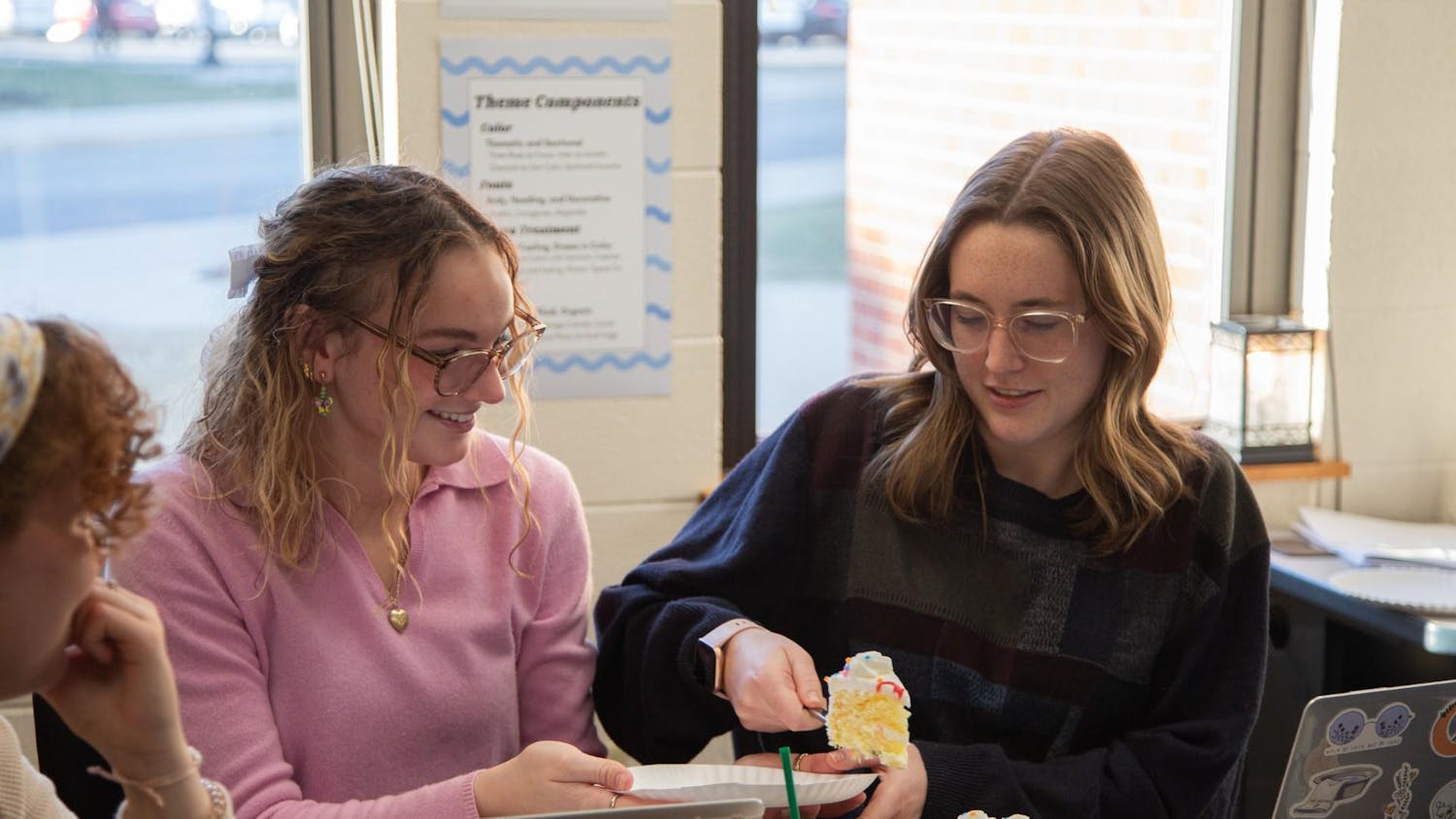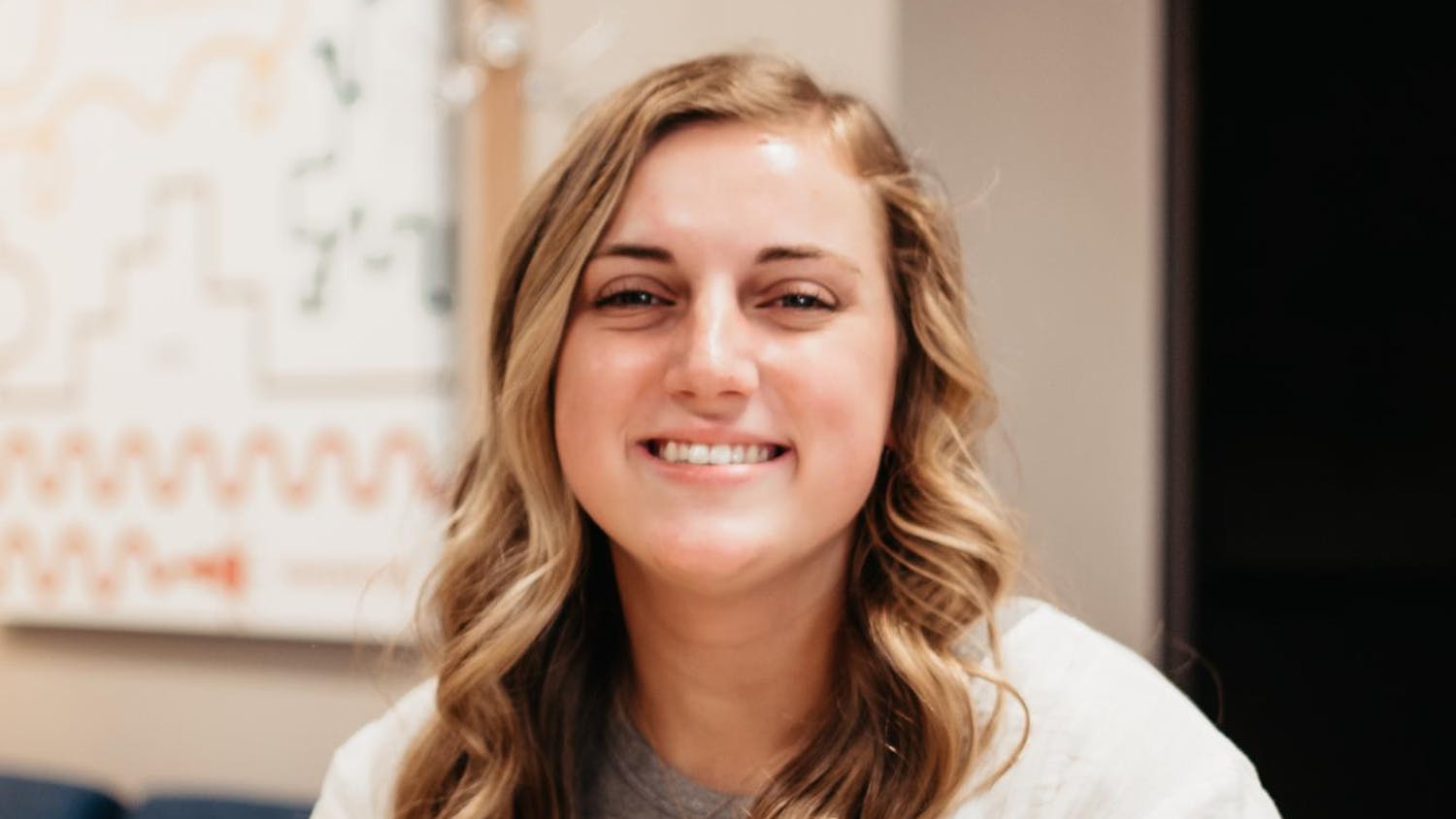BY: Kari Travis, World Editor
Published: Sept. 7, 2012
Coach Brad Zarges paces the edge of the Eichling lap pool, his Crocs squeaking against the soaked tiles. His eyes are fixed on the six students swimming laps in both the freestyle and backstroke.
It's 9 a.m. on a muggy Wednesday, and class has begun.
"Passing is inevitable!" Zarges calls to two students who halt in the middle of a lane to avoid a collision. "One minute left. Keep moving."
When the hands on the clock crawl forward 60 seconds more, Zarges kicks off his Crocs and leaps into the pool to join his students.
His perfect cannonball rocks the surface, spraying water several feet into the air.
"Remember what I told you in lecture," he says as the water settles, and he prepares students to work on their freestyle technique. "Hard is good. Good is hard. Doing hard things is good for you. Those things take a lot of practice."
Zarges, who serves as a professor for basketball and swimming courses and as assistant men's basketball coach at Taylor, is passionate about his class, not because he wants to turn students into professional competitors, but because he views General Physical Education Activity Courses, (PHP 200 classes), as an opportunity for young people to have fun.
More than that, he wants students to view PHP courses as a chance to learn valuable skills for the future, a shared goal of multiple professors and coaches within the physical education department.
Students are aware that this will involve hard work and, beyond that, graded assignments. For students who don't have much background in sports, improving skills for a grade takes focus.
"I started swimming when I was little," said junior Blake Andersen, a student in Zarges' beginning swimming class. "Took lessons and everything, but then I neglected swimming for the rest of my life, until now."
Andersen went on to say that he is most concerned about fixing bad habits he developed since childhood.
Because students of all levels of athletic ability participate in PHP classes, a huge part of helping students enjoy the sport while learning long-term skills is ensuring that class grading methods are fair, a goal the PHP department is striving to reach.
"We have within the last year agreed upon three areas that grading should be based upon," said Bruce Pratt, Department Chair and Associate Professor of Physical Education & Human Performance. "One would be class attendance and participation . . . . We also are hoping that each course will have a knowledge and cognitive component, and then the third area would be skill. So we hope that each teacher is doing some type of skill instruction and skill improvement."
Many professors within the department are carefully thinking through the structure of their grading systems. Denise Johnson, Assistant Coach for Women's Basketball and professor for PHP basketball classes during J-term, is aware of the challenges that can surface when trying to grade a skills-based class.
"There are different levels of skill in the class," Johnson said. "There are those who have never really played the game before, and I would say for those students the most challenging part is just learning the skills."
Johnson's strategy for maintaining a fair setting for students without previous sports experience has to do with incorporating the PHP department's three grading components into her teaching strategy.
"It's a lot like a regular classroom setting for a math course or any course that a student would be taking," Johnson said. "I believe that students have different ways of learning, so I offer different opportunities to earn points in there because I know that not everybody is going to learn the same way or excel at the same thing."
Zarges approaches his swimming class in the same way, counting a student's overall improvement in skill, not natural ability or previous experience, as reason to give a good score. He also values participation points for as much as 50 percent of a class grade.
But Zarges's ultimate goal is not to see his students get straight A's. He would rather steer the focus away from grades and back to the fun of the sport.
"It's really exciting to me when I walk in . . . and see a former student from class in the pool during open swim hours just doing a workout," Zarges said. "I think that something was accomplished there. An outcome from which you can say, 'That student has had a change of heart.'"
The class is wrapping up now, and the dripping students drag themselves from the water.
They've learned the finer points of freestyle today, and Zarges hints that next class will push them to work harder and swim stronger.
The water-logged students just shake their heads and smile. Zarges grins back and gets out of the pool himself.
"I love teaching this course," he said again, as he wiped water from his eyes. "Watching students improve their skills is the best part of being involved in these classes."




